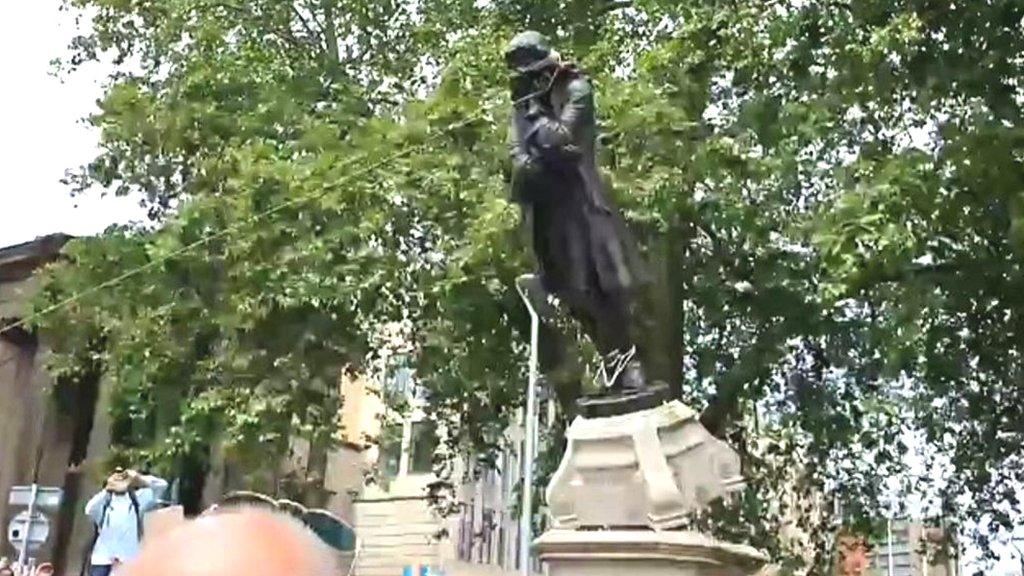Bristol: Slavery-linked society called on to hand over Clifton Down
- Published
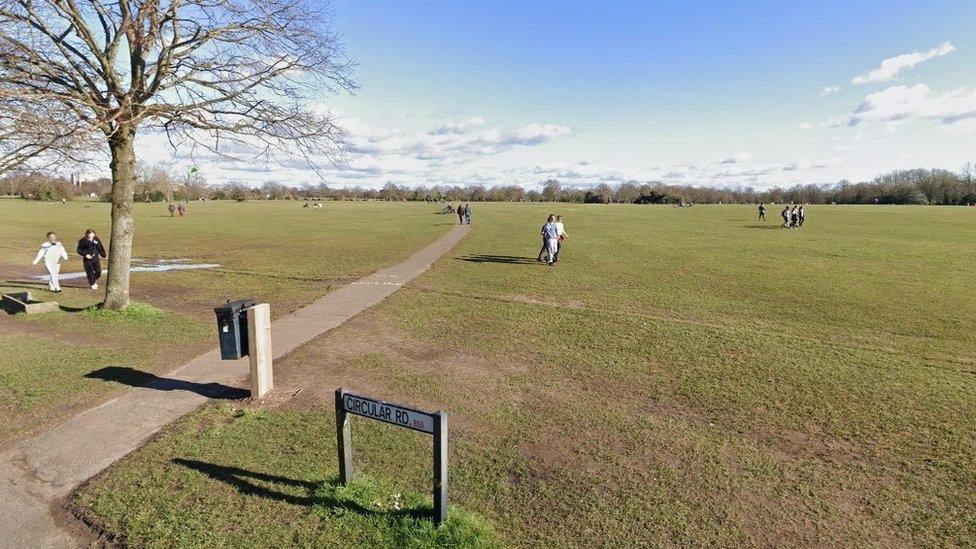
Clifton Down is equivalent in size to about 130 football pitches and makes up half of The Downs
Campaigners are calling for an ancient trading organisation that set up Bristol's role in the trans-Atlantic slave trade to hand over its share of a public common to the city.
Clifton Down has been joint owned by the Society of Merchant Venturers (SMV) and Bristol City council since 1861.
Downs for People said it was time for SMV to give all the land to the city.
Master of the Merchant Venturers David Freed said the pressure group had "thought-provoking" suggestions.
He also told a meeting of the Downs Committee on Monday that SMV members had originally bought Clifton Down to protect the land from housebuilding and get "absolutely no benefit" from their involvement keeping it as an open space.
Clifton Down is equivalent in size to just over 130 football pitches and makes up half of The Downs, a huge public common central to the city.
Founded in the 13th Century, the SMV set up Bristol's part in the trans-Atlantic slave trade in the 17th Century.
Both SMV, a charity, and the city council sit on the Downs Committee, established by a Victorian act of Parliament to oversee Clifton Down.
SMV also manages a number of the city's primary and secondary schools, provides housing for older people and owns several city buildings, including Clifton's Merchant Hall.
Downs for People said SMV had "promised to review their role in the city" after a statue of 17th Century slave trader Edward Colston was torn down in Bristol during Black Lives Matter protests in June 2020 and thrown into the city's harbour, garnering worldwide attention.
'Remove themselves'
Susan Carter, from the pressure group, said: "It has made no obvious changes. The Downs would be a good place to start."
Green councillor for Southville, Christine Townsend, who is backing the campaigners' demands, said in a written statement ahead of Monday night's Downs Committee meeting: "The Society of Merchant Venturers need to hand over the Downs and remove themselves from our governance structures, getting out of Bristol's democracy - removed if necessary."
In their public statement to the meeting, Downs for People wrote: "We can see no reason for the Merchant Venturers' continuing involvement. We are calling on them to give Clifton Down to the city, with a significant financial dowry," which it said would cover future maintenance.
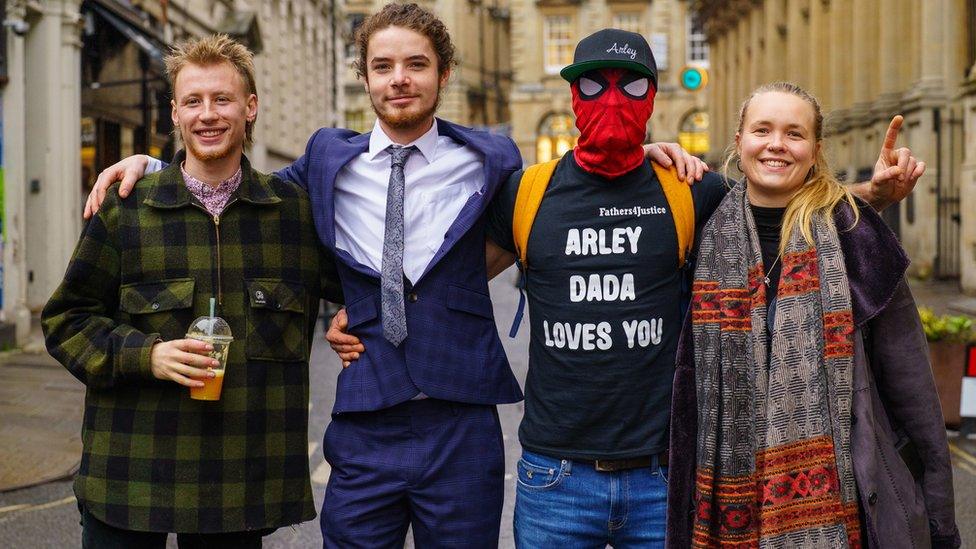
Four defendants went on trial accused of illegally removing a statue of Edward Colston in Bristol in June 2020 but were cleared of criminal damage
Master of the Merchant Venturers David Freed chose not to comment directly on either public statement.
But he told the Local Democracy Reporting Service (LDRS) that Downs for People were among "eleven stakeholder groups" who made "several innovative and thought-provoking suggestions" for protecting and preserving the long-term future of The Downs at a public consultation meeting in October last year.
"The Downs Committee is now exploring these ideas, alongside various different strategies and scenarios to ensure that this important piece of open green space remains freely accessible for everyone, forever," he said.
He also told Monday's Down's committee meeting that the SMV did not benefit from owning the land.
"The fact is the Merchants, under the terms of the 1861 Act, committed Clifton Down, which they owned, irrevocably to be kept as open space for the benefit of the people of Bristol, at a time when others were making a fortune out of developing houses all around," he said.
"In fact they bought the land specifically to stop that from happening and have sought throughout the history of The Downs to protect it."
Committee chair Lord Mayor of Bristol Steve Smith said: "I've found that the Merchants make a really positive and helpful contribution. They bring skills and experience, not to mention a great deal of time and effort for which they're not rewarded."

Follow BBC West on Facebook, external, Twitter, external and Instagram, external. Send your story ideas to: bristol@bbc.co.uk , external
Related topics
- Published5 January 2022
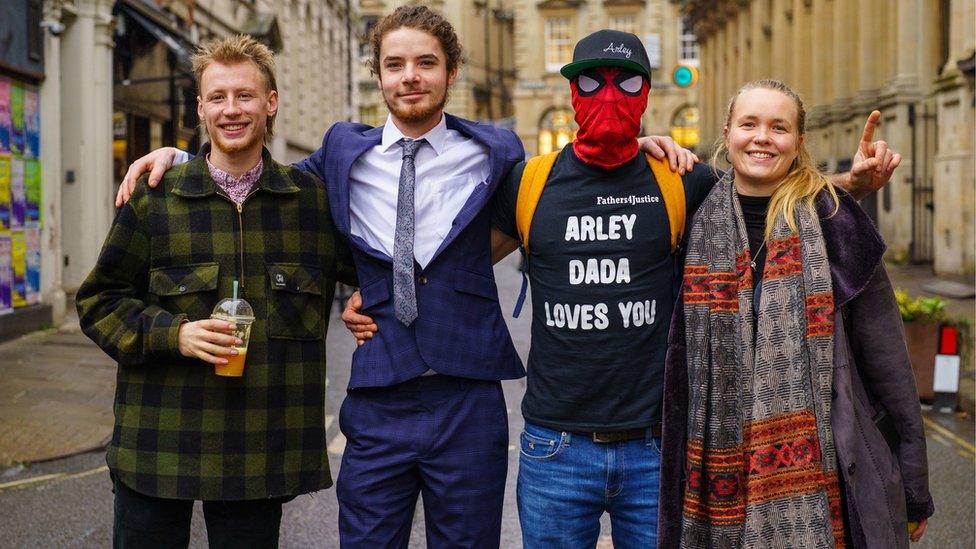
- Published30 July 2020
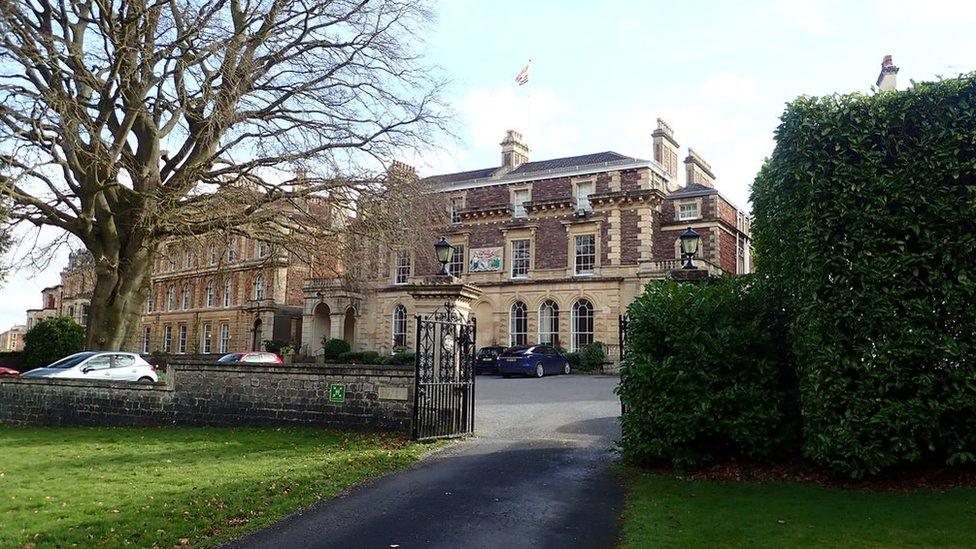
- Published8 June 2020
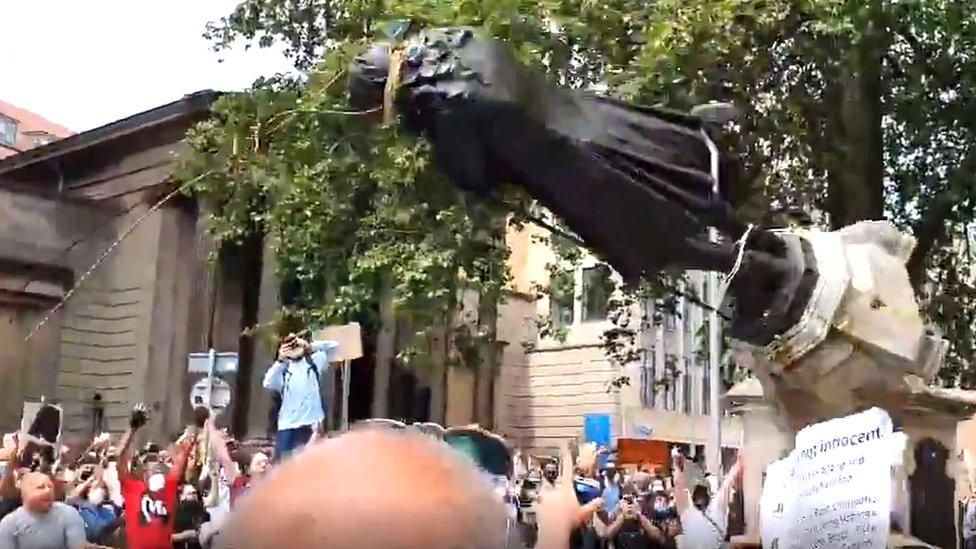
- Published7 June 2020
